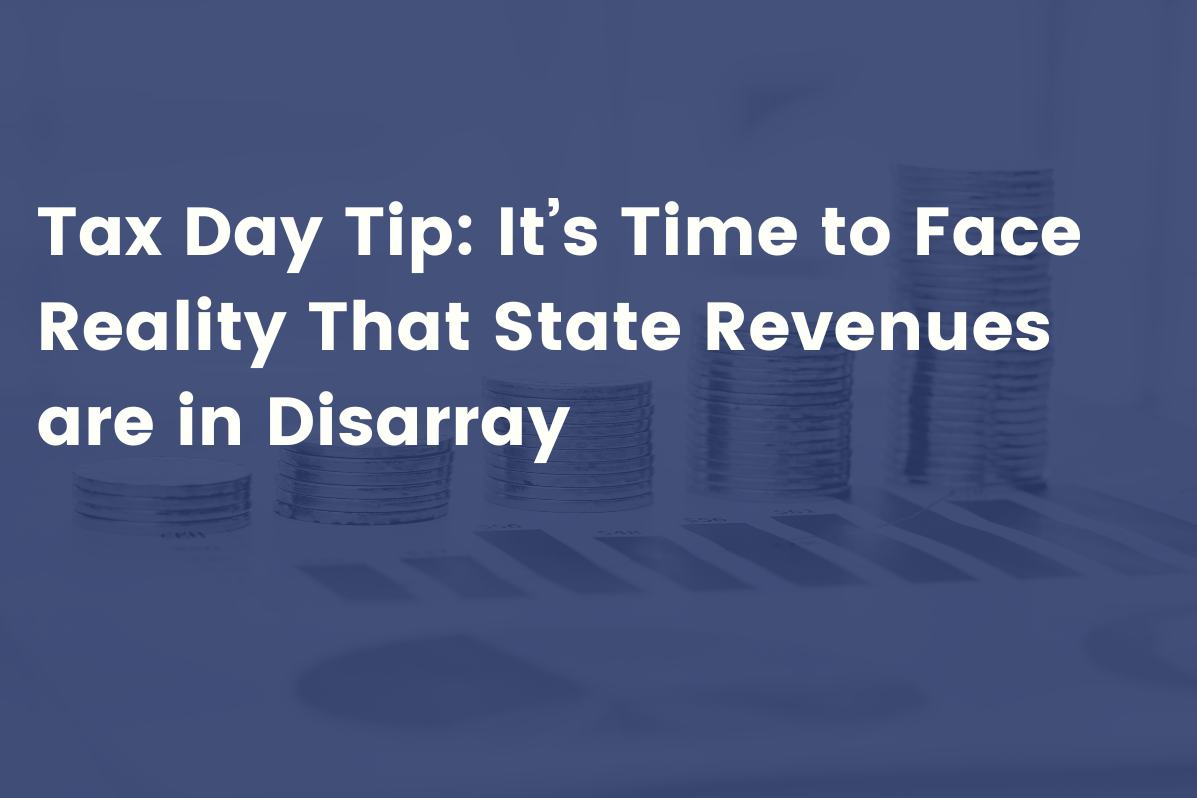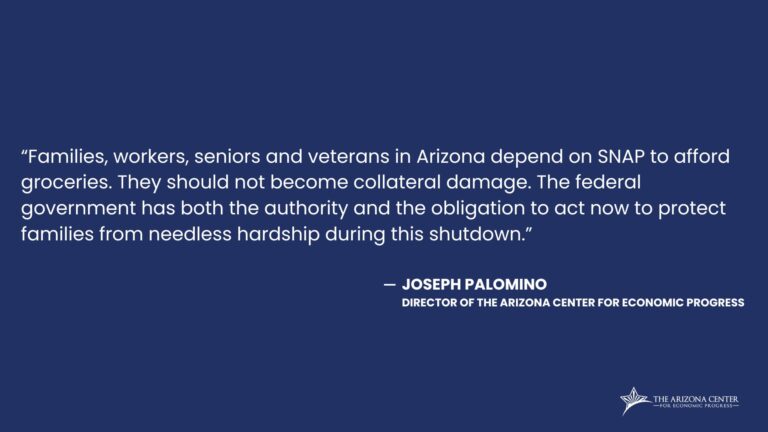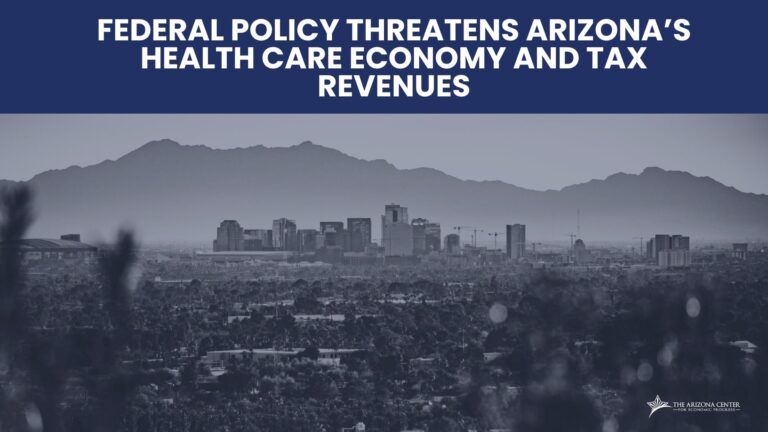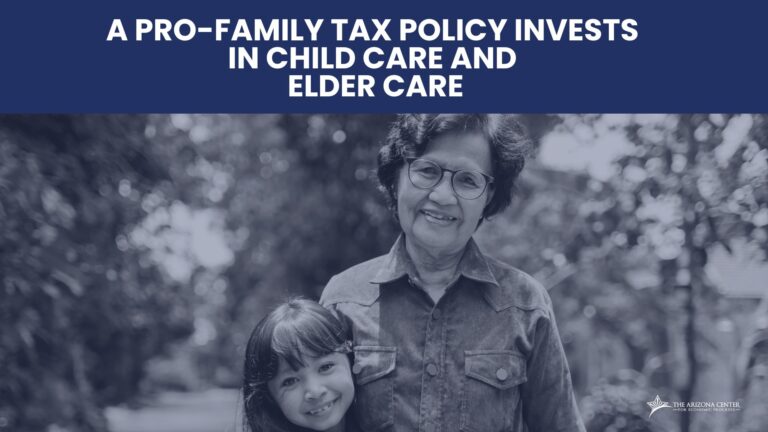
Tax Day Tip: It’s Time to Face Reality That State Revenues are in Disarray
Governor Hobbs and the state legislature have until June 30 to pass a budget. The major problem they face is state revenues that are lower than expected when they passed the budget last year. They need to not only adopt a new budget for next year but also balance the current one.
On Thursday, April 11, Arizona’s Finance Advisory Committee confirmed that state revenues are still below what is needed to support current state programs. Altogether, revenues are $1.8 billion below expected expenditures through budget year 2027. This is a new dollar amount but not a new trend. In January, when the committee last met, they delivered sobering information – the state revenue shortfall projections were more than double what they had been only three months before. Each of the next three budget years and the current one was expected to have less revenue than needed to support state programs.
The latest projections are an improvement over those from January. Still, the legislature is facing a $650 million shortfall for the budget year that ends June 30, with another $676 million short for the budget year that begins July 1. Altogether, the legislature and governor need to resolve $1.8 billion in shortfalls over the next three years.
What is the Finance Advisory Committee?
While the Finance Advisory Committee (FAC) meets at the state legislature, it is not a legislative committee. Instead, it is a committee created to advise the Joint Legislative Budget Committee staff on state revenues and the economy. Projections received from committee members, as well as projections produced by a model from the University of Arizona, are combined to produce the forecasts released at the meetings, which occur three times a year. During the meetings, committee members also provide information on Arizona’s economy based on their various areas of expertise, such as employment, wages, inflation, and housing.
It’s Not the Economy – It’s the Flat Tax
Unlike other times when economic conditions resulted in lower state revenues, Arizona’s economy continues to be healthy. The rate of job growth exceeds the national average. Per capital income is up 3.5% from 2019.
The revenue shortfall is almost entirely due to the flat individual income tax. In 2021, the Arizona legislature replaced Arizona’s graduated income tax with a flat tax. At the time, analysts estimated the flat tax would reduce General Fund revenues by $2 billion per year when fully phased in. The latest estimates are that individual income tax revenue for the current budget year alone will be more than $700 million less than projected when the budget was passed last year.
Arizona’s Legislature Needs to Fix the Revenue Problem, Not Cut Spending
Arizona’s budget situation is a revenue problem, not a spending problem, and the fix lies in restoring sound tax policy, not wholesale spending cuts. In fact, Arizonans are depending on the legislature and Governor to make investments in programs that help improve the lives of Arizona’s children and families, including:
- Maintaining access to quality and affordable child care. Without an infusion of state dollars, working families seeking child care assistance will face a waiting list for the first time since 2019 and child care providers may have to close their doors;
- Fully funding high-quality K-12 public education for Arizona’s children;
- Supporting investments in affordable housing;
- Expanding dental health services for adults on Medicaid, especially during pregnancy;
- Increasing eligibility for KidsCare so more Arizona children can access health insurance;
- Increasing access to services and financial support for kinship families who take over when parents can no longer care for their children, and
- Strengthening anti-hunger and safety net programs to improve the well-being of families.
Short-Term Solutions Should Include Clawing Back Last Year’s Giveaways
Last year the legislature approved more than $2 billion in one-time funding for more than 75 special projects. Rather than adopting the stance that the budget should be balanced by one-size-fits-all cuts to existing, ongoing programs, the legislature should make the common-sense decision to postpone some of these new projects until revenues are available. Governor Hobbs’ budget proposal already identified many costly projects that could be postponed. The Governor’s budget also identified $282 million in agency funds that could be deposited into the General Fund while assuring that these funds remain structurally balanced.
A Long-Term Solution
It is clear that the flat income tax is much more costly than expected at the time it was passed. It’s time for the legislature to face this reality and adjust the tax rates so that priorities important to Arizonans can be funded. Revenue solutions should include returning to a graduated income tax. A graduated income tax would offset the regressivity of Arizona’s overall tax system that currently expects lowest income households to pay a much higher percentage of their income in taxes than households with higher incomes.
No More Tax Cuts
Arizona’s legislature has a history of passing tax cuts no matter what the fiscal situation looks like. Every year since 1990, with the exceptions of 2003 and 2020, the legislature has passed some type of tax cut. This includes $516 million in the middle of the Great Recession when the legislature was forced to mortgage the state capitol in order to pay bills. Those tax cuts included reducing the corporate income tax rate, reducing the capital gains tax rate, and allowing multi-state corporations to pick the method of determining their taxable income that is most advantageous to them.
On top of all prior tax cuts, the flat tax was the tax cut that finally depleted state revenues. The flat tax has also made Arizona’s tax code among the country’s most regressive. Today, low- and middle-income Arizona taxpayers pay up to twice as much of their income in state and local taxes than do those taxpayers with the highest incomes.
This Tax Day, the AZ Center urges the legislature to recognize that even today’s booming job and economic growth is not enough to withstand the harmful consequences of the flat tax. It’s past time for sound and economically just tax policies to be implemented.



